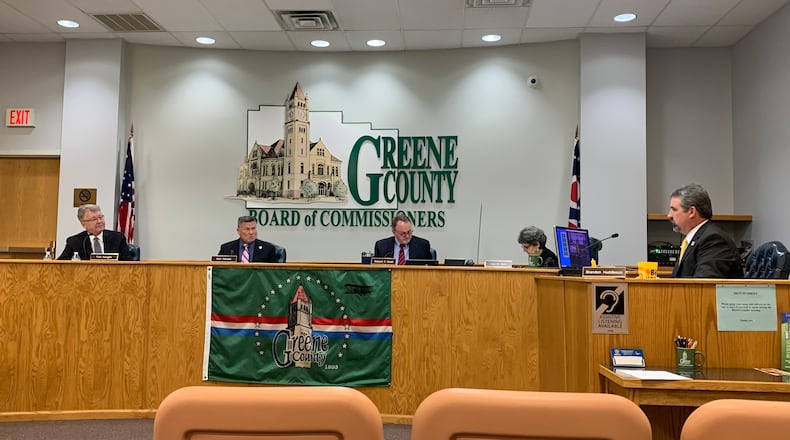“Prayer giving is open to all,” the board’s one-page policy reads. Individuals of any faith can sign up on a volunteer basis.
Critics of the policy say it imposes religion on public business and is “Constitutionally concerning,” Gyamfi Gyamerah, a Yellow Springs resident, told commissioners Thursday.
“Prayer at a government meeting is unnecessary, inappropriate, and divisive,” Gyamerah said. “Board members are free to pray and to worship on their own time, in their own way. They do not need to worship on taxpayers’ time.”
Gyamerah added that public prayers would exclude Americans who are non-religious.
“It is coercive and intimidating for citizens to come to a public meeting and be required to either make a public showing of their non-belief, or show deference to a religious sentiment they do not believe in,” he said.
Congress, the Ohio Statehouse, and many local governments still open public meetings with prayer, and have since the 1700s.
Prior to the vote, Commissioner Dick Gould said that prayer before public meetings is in line with the sentiments of America’s Founding Fathers, reading a quote from Benjamin Franklin in which he proposed prayer before meetings of the Constitutional Convention.
Mid-reading, Gyamerah refuted the quote from the audience, saying that Benjamin Franklin also opposed organized religion. The meeting was stopped as the board and Gyamerah began to argue from either side of the podium, and Gyamerah was asked to leave.
“You are gaslighting the American people,” Gyamerah said as he walked out.
Commissioner Rick Perales, who spearheaded the resolution to adopt the prayer policy, said the policy is intended to be inclusive of all religions, and that the commissioners welcome expressions of goodwill from all faiths.
“There is more than an appetite, we want to get the word out,” Perales said of the broader Greene County faith community. “What we want is for them to come out and receive blessings and guidance.”
Legal analysis provided to the Commissioners by the Greene County Prosecutor’s Office indicates that there is much legal precedent for allowing prayer at public meetings of local governments. Governments cannot, however, limit participation to those of certain faiths, review prayers in advance, or dictate the “tone or content” of prayer.
About the Author

